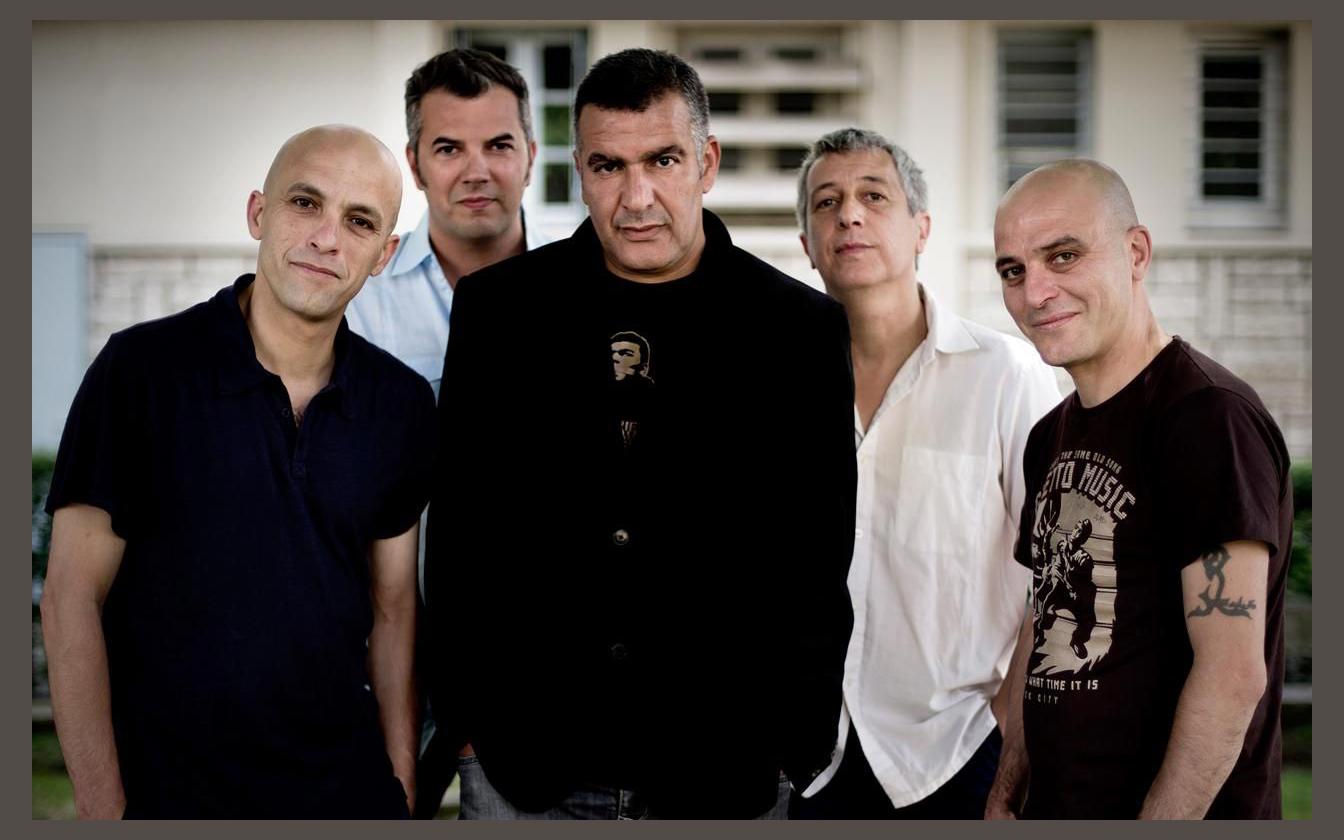 Zebda
Zebda
Zebda: The Pioneers of Motivated Music
In the bustling heart of Toulouse, France, a band emerged in the early 1990s that would ignite a musical revolution and inspire generations to come. Zebda, a collective of Algerian-French musicians, burst onto the scene with their infectious blend of rai, rock, and traditional French folk.
The Founding Fathers
Zebda's founding members hailed from diverse backgrounds, each bringing their unique talents and experiences to the group. Magyd Cherfi, the enigmatic frontman, possessed an unparalleled vocal prowess and a sharp wit that cut through the societal fabric. Hakim Amokrane, the skilled guitarist, infused their music with the vibrant rhythms of rai and the soul of traditional Algerian music. Mouss Amokrane, Hakim's brother, provided the rhythmic backbone on drums, while Pascal Cabero and Joël Saurin added depth and texture on bass and keyboards, respectively.
Early Days and Challenges
As Zebda began to make a name for themselves, they faced their fair share of challenges. Their music, which often tackled sensitive social and political issues, ruffled feathers and drew criticism from both the far right and the establishment. However, the band remained undeterred, using their platform to advocate for social justice and equality.
The Rise to Fame
Their breakthrough came in 1998 with the release of their album "Motivés." The title track, an anthem of determination and resilience, became a national hit and propelled the band into the mainstream. Zebda's concerts were renowned for their electrifying energy and their ability to unite people from all walks of life.
Discography and Legacy
Throughout their illustrious career, Zebda has released a string of critically acclaimed albums, including "Essence ordinaire" (1996), "Le bruit et l'odeur" (2001), and "Second tour" (2004). Their music has been praised for its originality, its fusion of diverse musical influences, and its unwavering commitment to social consciousness.
Members and Controversies
Zebda has undergone several lineup changes over the years, with members coming and going. In 2005, the group disbanded briefly due to internal conflicts. However, they reunited in 2009 and have continued to perform and release music to this day.
The band has not been exempt from controversies. In 2019, they were accused of anti-Semitism by the League of International Criminal Lawyers. However, the members of Zebda have vehemently denied these allegations and have reaffirmed their commitment to fighting all forms of discrimination.
Continued Impact
Zebda's music has had a profound impact on French society. Their songs have inspired countless people to embrace their own identities, challenge injustices, and strive for a better future. The band's legacy continues to inspire new generations of artists and activists who believe in the power of music to change the world.
In the bustling heart of Toulouse, France, a band emerged in the early 1990s that would ignite a musical revolution and inspire generations to come. Zebda, a collective of Algerian-French musicians, burst onto the scene with their infectious blend of rai, rock, and traditional French folk.
The Founding Fathers
Zebda's founding members hailed from diverse backgrounds, each bringing their unique talents and experiences to the group. Magyd Cherfi, the enigmatic frontman, possessed an unparalleled vocal prowess and a sharp wit that cut through the societal fabric. Hakim Amokrane, the skilled guitarist, infused their music with the vibrant rhythms of rai and the soul of traditional Algerian music. Mouss Amokrane, Hakim's brother, provided the rhythmic backbone on drums, while Pascal Cabero and Joël Saurin added depth and texture on bass and keyboards, respectively.
Early Days and Challenges
As Zebda began to make a name for themselves, they faced their fair share of challenges. Their music, which often tackled sensitive social and political issues, ruffled feathers and drew criticism from both the far right and the establishment. However, the band remained undeterred, using their platform to advocate for social justice and equality.
The Rise to Fame
Their breakthrough came in 1998 with the release of their album "Motivés." The title track, an anthem of determination and resilience, became a national hit and propelled the band into the mainstream. Zebda's concerts were renowned for their electrifying energy and their ability to unite people from all walks of life.
Discography and Legacy
Throughout their illustrious career, Zebda has released a string of critically acclaimed albums, including "Essence ordinaire" (1996), "Le bruit et l'odeur" (2001), and "Second tour" (2004). Their music has been praised for its originality, its fusion of diverse musical influences, and its unwavering commitment to social consciousness.
Members and Controversies
Zebda has undergone several lineup changes over the years, with members coming and going. In 2005, the group disbanded briefly due to internal conflicts. However, they reunited in 2009 and have continued to perform and release music to this day.
The band has not been exempt from controversies. In 2019, they were accused of anti-Semitism by the League of International Criminal Lawyers. However, the members of Zebda have vehemently denied these allegations and have reaffirmed their commitment to fighting all forms of discrimination.
Continued Impact
Zebda's music has had a profound impact on French society. Their songs have inspired countless people to embrace their own identities, challenge injustices, and strive for a better future. The band's legacy continues to inspire new generations of artists and activists who believe in the power of music to change the world.